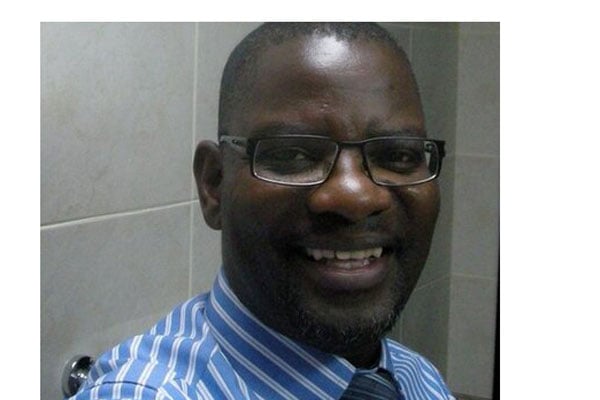Our messy politics needs serious soul-searching

Author: Musaazi Namiti. PHOTO/FILE
What you need to know:
A second story about conjoined twins illustrates how politics is doing little for us. The twins were born in Amuria District, and one was stillborn.
Ugandan Christians, like their counterparts around the world, are celebrating Easter today, but for many, there is precious little to celebrate. In fact, some are in tears, and we have seen photos of them in newspapers weeping.
Their fathers, sons and daughters have either been killed or are languishing in prison — not because they committed crimes punished by our laws but because they supported and voted for a presidential candidate the sitting president is bent on killing politically.
It says a lot about the kind of democracy you have if voting for a popular candidate challenging the president means you will lose your life or get abducted and held incommunicado by security forces who are supposed to protect you.
The media has played its role in giving this deplorable abuse of people’s rights the attention it deserves. But, understandably enough, the attention of the media keeps shifting to new developments as they unfold. Now the focus is on who will be the next Speaker of Parliament.
In my book, it is a sterile debate. We spend the better part of our lives talking politics, but politics is failing to fix problems. As one commentator famously remarked: “In Uganda, there’s so much excitement about political issues, but all this politics seems to be working against and not for our development.”
Why is our politics failing to fix problems yet individuals running private enterprises (think Cafe Javas) in Uganda manage them well? Why is incompetence more visible where politicians are supposed to play some part?
Last month, this newspaper reported a story of 89-year-old Joseph Bataziine who has been trying to get his pension for 37 years without success. Mr Bataziine’s photo was splashed across the front page, and the story said his certificate shows he retired in June 1984.
How does this happen when the main reason we hold elections is that we need leaders to solve people’s problems? With FM radio stations all over Uganda, how can the government fail to tell Ugandans how they should go about processing their pensions?
As Mr Bantaziine’s story was being shared, relatives of a lawyer who died in prison, where he was serving a 16-year jail term for colluding with top officials of the Ministry of Public Service to steal billions of pensioners’ money, were waiting for a court decision on where he had to be buried following a family disagreement.
Therefore, we cannot say that the government has no money for pensioners. The problem is corruption and incompetence.
It is because of corruption and incompetence, as this newspaper reported on March 23, that Gladys Nakacwa, along with some of her seven children, had to camp at Masaka District headquarters, demanding pension of her late husband, Charles Kiggundu.
According to the story, Ms Nakacwa started processing the pension in 2013, a year after her husband died, but she had been frustrated by district officials asking for bribes.
A second story about conjoined twins illustrates how politics is doing little for us. The twins were born in Amuria District, and one was stillborn. Doctors referred them to Soroti Regional Referral Hospital, which referred them to Mulago, the national referral hospital. But no doctor at Mulago could separate the twins. They were sent back to Soroti, and Dr Joseph Epodoi separated them.
As we celebrate Easter, we need to do soul-searching. President Museveni is to blame for some of the problems, of course. But are we certain that if he leaves power, the new minister of Internal Affairs, for example, will ensure that no Ugandan pays a bribe to get a passport?
Mr Namiti is a journalist and former
Al Jazeera digital editor in charge of the Africa desk
[email protected] @kazbuk




